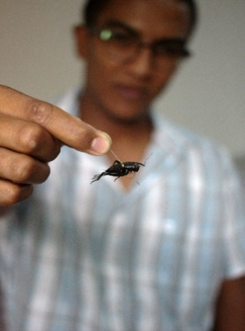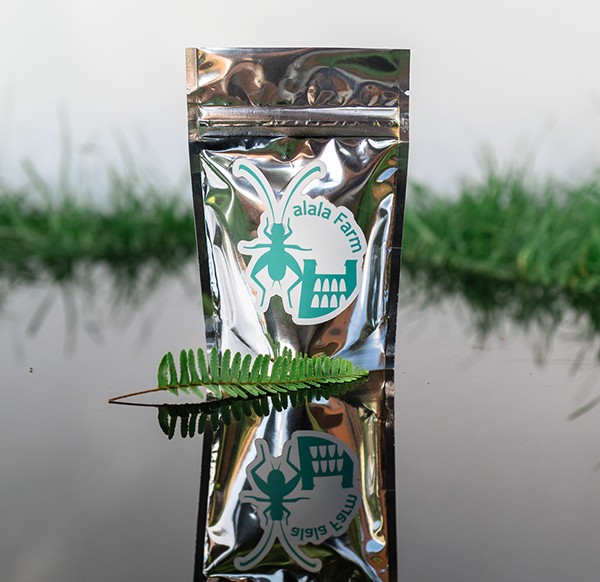Speeches Shim

Livestock production – beef, pigs, goats, sheep – has come under scrutiny as having significant environmental impacts, including being one of the leading factors causing climate change. That is why a group of researchers decided to create a new environmentally-friendly, sustainable meat protein for market in Madagascar – one made from crickets.
The researchers, Dr. Brian Fisher from the California Academy of Sciences and Dr. Andrianjaka Ravelomanana from the Madagascar Biodiversity Center, received a USAID Partnerships for Enhanced
Engagement in Research (PEER) grant in 2017 in order to conduct research and scale up their production of cricket protein. The production of cricket protein is also being used to combat malnutrition and food insecurity in Madagascar, which has one of the highest rates of stunting due to early-childhood malnutrition in the world with over 40% of children considered to be malnourished.
Their work is being done at the Biodiversity Center in downtown Antananarivo, a city of over 3 million people and the capital of Madagascar.
Inside, millions of crickets are grown in small boxes known as ‘cricket condos’. The room is filled with dozens of these bins. There, the crickets are fed, watered, and nurtured for about seven weeks until they’re ready to be processed into a powder. The powder can easily be added into common dishes, especially rice, which is the traditional food of Madagascar and features prominently in every meal of the day.
The powdered cricket packs a big protein punch, but with a minimal environmental footprint, as crickets demand much fewer resources to grow, helping reduce the strain on Madagascar’s environment and biodiversity.
The PEER program is a competitive grants initiative managed out of the USAID Global Development Lab and is administered by the U.S. National Academy of Sciences. PEER invites scientists in developing countries to partner with U.S. researchers to solve some of development’s most vexing problems.

In addition to cricket farming, the Biodiversity Center is also cataloging traditional methods and places where the Malagasy people cultivate or gather insects as a food source. They’ve already identified areas in Southwest Madagascar where people make powdered insect protein and regions in highland forests where children supplement their diets with wild forest insects. Their research has also expanded previously held beliefs about insect biodiversity, as they continue to learn of new species that Malagasy have known about - and been eating - for generations.
The team hopes to bring cricket protein products to market and is assessing the scale of demand. The center is currently producing about 140 pounds of cricket protein powder a week, some of which is being used by USAID project partner Catholic Relief Services to supplement food security and food assistance projects.

Comment
Make a general inquiry or suggest an improvement.